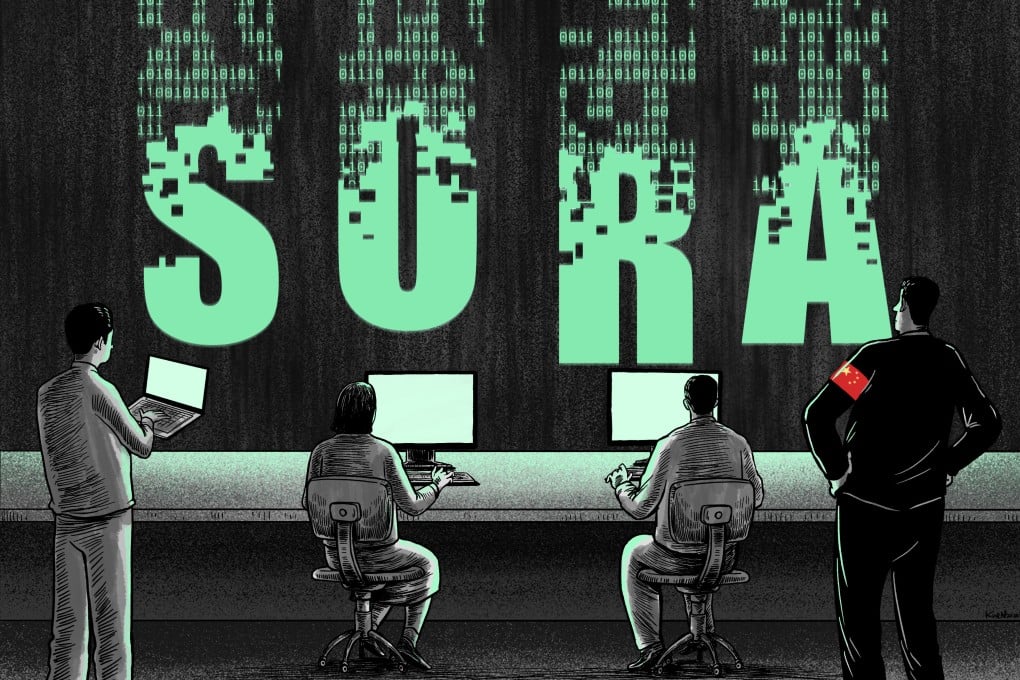OpenAI’s Sora pours ‘cold water’ on China’s AI dreams, as text-to-video advancements prompt more soul-searching
- The introduction of Sora has forced China’s AI industry to again grapple with how it will catch up to the latest tech in the face of escalating US sanctions
- China had envisioned itself as dominating the AI race through its vast troves of data, but quality training data has now proven critical

Just a few years ago, China had envisioned itself eventually dominating the global AI race by leveraging the country’s vast troves of data to develop mature applications for functions like facial recognition. Recent developments in generative AI – which uses large models to produce content like text, images and video – have changed the calculus, making China look like a laggard once again.
Sora, launched on February 16, moves the AI battle into the realm of video generation just as China is facing greater challenges from a lack of access to key tools such as advanced graphics processing units (GPUs) developed by Nvidia, the leading AI chip designer, owing to escalating US export restrictions. The country’s best AI players are already a number of years behind their American peers in generative AI, an area in which Beijing’s self-trumpeted internet governance model looks like a liability.
Zhou Hongyi, the founder of Chinese internet security firm 360 Security Technology, which has joined China’s race to launch its own ChatGPT-style large language model, said the introduction of Sora was like a “barrel of cold water poured down China’s head”, Chinese media Yicai reported on Friday. “It cools down the heads of many people, forcing us to see the gap with leaders overseas,” he added.
In one knee-jerk response to Sora this week, Beijing asked its most trusted state-owned enterprises to take a lead on AI. The State Council’s State-owned Assets Supervision and Administration Commission on Monday urged firms under direct control of the central government to “embrace the profound changes brought about by AI”. Ten of these firms were designated as champions to promote AI, but the watchdog did not name the selected companies.
Xie Saining, an assistant professor of Computer Science at Courant Institute of Mathematical Sciences at New York University, denied he was involved in the development of Sora and emphasised the importance of talent, data and computing power. In a widely reported social media post, Xie asked whether China is ready for Sora, saying the country should make sure the technology “won’t be abused to serve as a profiteering and manipulation tool by some people or groups”.